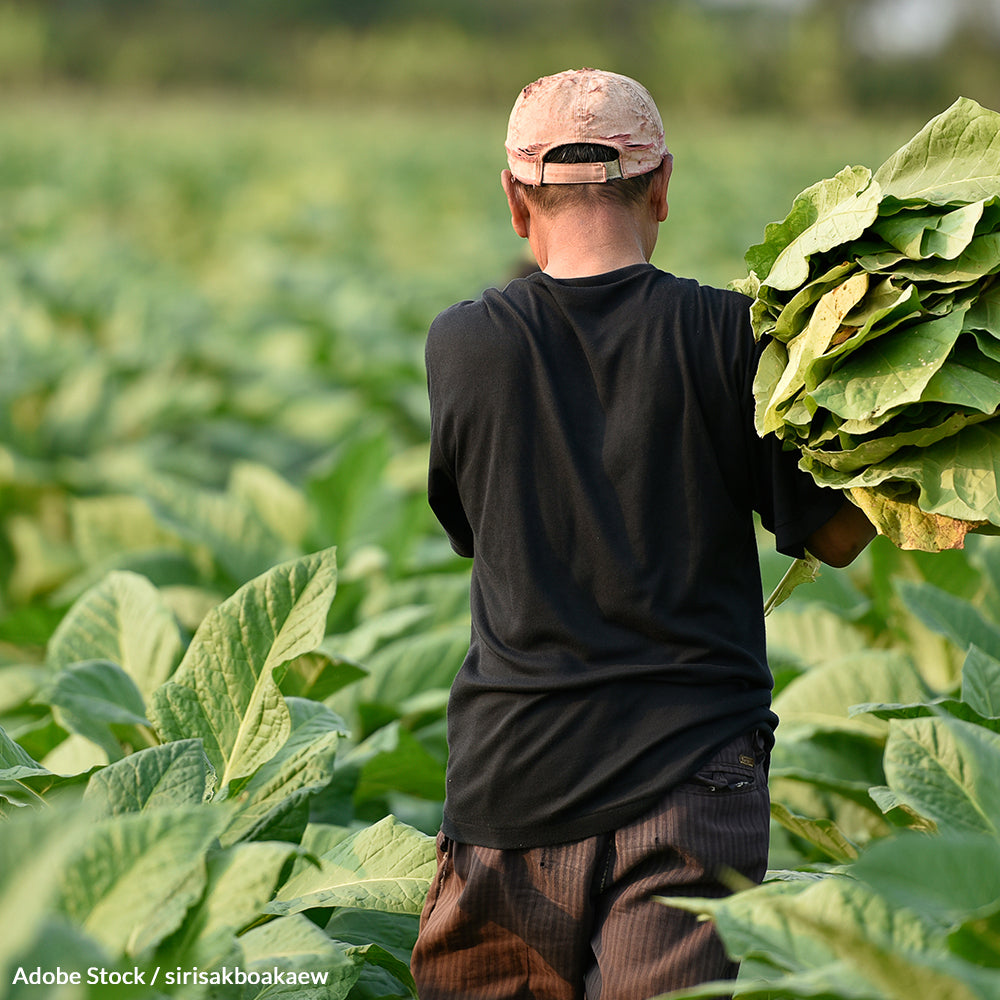Keep Children Out Of The Tobacco Industry
Final signature count: 10,943
10,943 signatures toward our 30,000 goal
Sponsor: The Hunger Site
Thousands of children work in tobacco fields in the U.S., potentially being exposed to six cigarettes worth of nicotine per day.

The minimum age to buy a pack of cigarettes in the United States is 18, yet there are thousands of child laborers the U.S. working in tobacco fields, consequently suffering the devastating health effects of nicotine poisoning without ever having touched a cigarette.
The reason why can be found in the 1938 Fair Labor Standards Act1, which makes exceptions to child labor laws for small farms and allows hires as young as 12 for larger ones. During tobacco picking season, some of the smaller farms in hire children as young as 7 years old2.
Tobacco farmers say they need the extra labor, especially during harvest season, and in the rural reaches of Kentucky, North Carolina, Tennessee, and Virginia, kids often work to help support their families. But children can also contract health problems related to nicotine exposure while working in tobacco fields3.
Workers in tobacco are vulnerable to heat sickness, in temperatures which regularly go above 90 degrees. They also risk injuries from sharp objects; and potentially toxic agrochemicals4.
Workers are regularly exposed to six cigarettes worth of nicotine per day, one study found. This can result in acute nicotine poisoning, called green tobacco sickness, characterized by nausea, vomiting, headaches and dizziness5.
Human Rights Watch interviewed 26 children, ages 16 and 17, who worked on tobacco farms in North Carolina. Almost all of the children interviewed said they experienced sickness, pain, and discomfort while working. Many children also reported either working in or near fields that were being sprayed with pesticides, or re-entering fields that had been sprayed very recently. A number of children reported immediate illness after coming into contact with pesticides6.
Federal child labor provisions do not require minors to obtain work permits and do not limit the number of hours or times of day that young farmworkers may legally work7.
Minimum-wage standards do not apply to all farmworkers, and workers under the age of 20 can be paid a mere $4.25 per hour during their first consecutive 90 calendar days of employment with a particular employer8.
That means children as young as 12 can work unlimited hours on a tobacco farm while being paid less than other workers.
Help us take a stand for the health of all children in the U.S.
Sign the petition and ask the U.S. government to put in place legislation that prohibits tobacco companies from using child labor and ensure regular human rights monitoring for all their workers.


